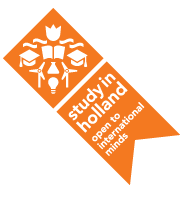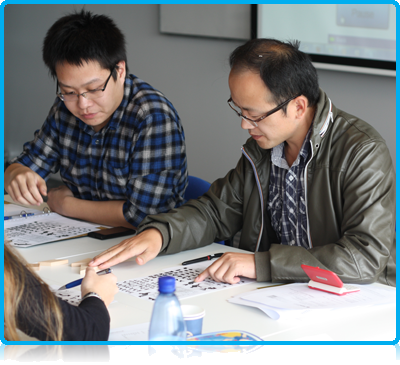Dutch Government to Close Neso Offices

 The Dutch government is yet to announce which of its Nuffic Neso’s (Netherlands Education Support Offfices) worldwide face possible closure, but minister Bussemaker has insisted the services they deliver does not necessarily have to be compromised. The Neso’s are located in China, Brazil, India, Indonesia, Mexico, Russia, Taipei, Thailand, Vietnam and South Korea - countries deemed of strategic importance to the development of higher education in the Netherlands. The Neso’s promote education by helping Dutch students who want to study abroad but, more importantly, assisting foreign students who plan on studying in The Netherlands.
The Dutch government is yet to announce which of its Nuffic Neso’s (Netherlands Education Support Offfices) worldwide face possible closure, but minister Bussemaker has insisted the services they deliver does not necessarily have to be compromised. The Neso’s are located in China, Brazil, India, Indonesia, Mexico, Russia, Taipei, Thailand, Vietnam and South Korea - countries deemed of strategic importance to the development of higher education in the Netherlands. The Neso’s promote education by helping Dutch students who want to study abroad but, more importantly, assisting foreign students who plan on studying in The Netherlands.
Current Wittenborg student, Guido Guimbard, has for instance been helped by Neso in Brazil to come to the Netherlands earlier this year. Guido is part of Brazil’s Science Without Borders programme.
Neso’s were instigated by NUFFIC in the early 2000’s and although Indonesia had already had the Netherlands Education Centre (NEC) for a number of years, the first ‘NESO’ (Beijing) was officially opened in partnership with the Chinese government agency CSCSE in June 2001, under the then Minister of education Hermans. “At that time, in my function as international officer for Saxion Universities, I was introduced to Hermans at the international student fair in Beijing in 2001, and we both commented on the important role an education support office could provide for raising the awareness of the Netherlands and Dutch higher education”, says Wittenborg’s general director Mrs Maggie Feng. ‘The then Neso director and Wittenborg’s Chairman (Peter Birdsall) held many discussions on the introduction of the (British) IELTS as a standard English Language Testing system, instead of the (American) TOEFL, to reflect the European nature of the Dutch higher education system, which was a good thing to ensure quality.’
IELTS was first introduced and monitored by Neso Beijing and is now the standard for students from all around the world, wishing to study in Holland.

 On the 1st February 2004, the Netherlands brought in a special condition for the admission of students from China – the so-called Neso Certificate (Neso -certificaat). This certificate was issued by the Neso Beijing and showed that a prospective student from China had both legitimate and valid pre-schooling as well as a valid IELTS score, which was established then as IELTS 5.5 for Bachelor (Since raised to 6). The idea was that by ensuring academic worthiness of Chinese higher education applicants, unwanted immigration would be avoided. Neso therefore became an immigration screening organization, and was essential for higher education institutions at that time.
On the 1st February 2004, the Netherlands brought in a special condition for the admission of students from China – the so-called Neso Certificate (Neso -certificaat). This certificate was issued by the Neso Beijing and showed that a prospective student from China had both legitimate and valid pre-schooling as well as a valid IELTS score, which was established then as IELTS 5.5 for Bachelor (Since raised to 6). The idea was that by ensuring academic worthiness of Chinese higher education applicants, unwanted immigration would be avoided. Neso therefore became an immigration screening organization, and was essential for higher education institutions at that time.
In early 2010 the Neso Beijing was forced to close due to rumored changes in their relationship with CSCSE, but have since found a new partner and were able to re-open their offices on the 15th October 2010, in the affluent area of Xidan.
During its closure in 2010, the Beijing Neso Certificate was transformed into the NUFFIC certificate and now issued directly from the Hague (Netherlands), so would no longer be directly affected by NUFFIC funding cuts and closures.
Chairman Birdsall comments “Closing the Neso’s is like throwing the baby out with the bathwater. Holland must understand that when the going gets economically tough, you need to cut unnecessary costs and sell good, quality education. The international student market is worth billions – make use of your potential of Study in Holland”
In a recent debate on the planned cuts in education subsidies, Bussemaker emphasized internationalisation remains important to cabinet.
The Netherlands plans to reduce its current investment of 5,5 million euros in the Neso’s by 1,9 million euros. Opponents to the plan argue The Netherlands has earned good returns on this investment through an increase in the number of foreign students seeking to further its education here.
The debate is set to continue this week, but Bussemaker hopes the matter will be settled before the end of the summer. She said last week several other countries can be reached from the BRIC countries (Brazil, Russia, India and China) as well as Indonesia. Bussemaker holds the opinion that The Netherlands has to work smarter en more focused in attracting students from other countries. This would be more cost-efficient in terms of leasing office space, among other expenditures.
According to Bussemaker government’s commitment to internationalization would soon be evident when the cabinet releases its response to a recent report by the Social and Economic Council of the Netherlands (SER). The council recommends government, business, education and other stakeholders work together to not only attract more foreign students, but also ensure they stay and fill current shortages in the labour market.
WUP 3/7/2013
by Anesca Smith
©WUAS Press